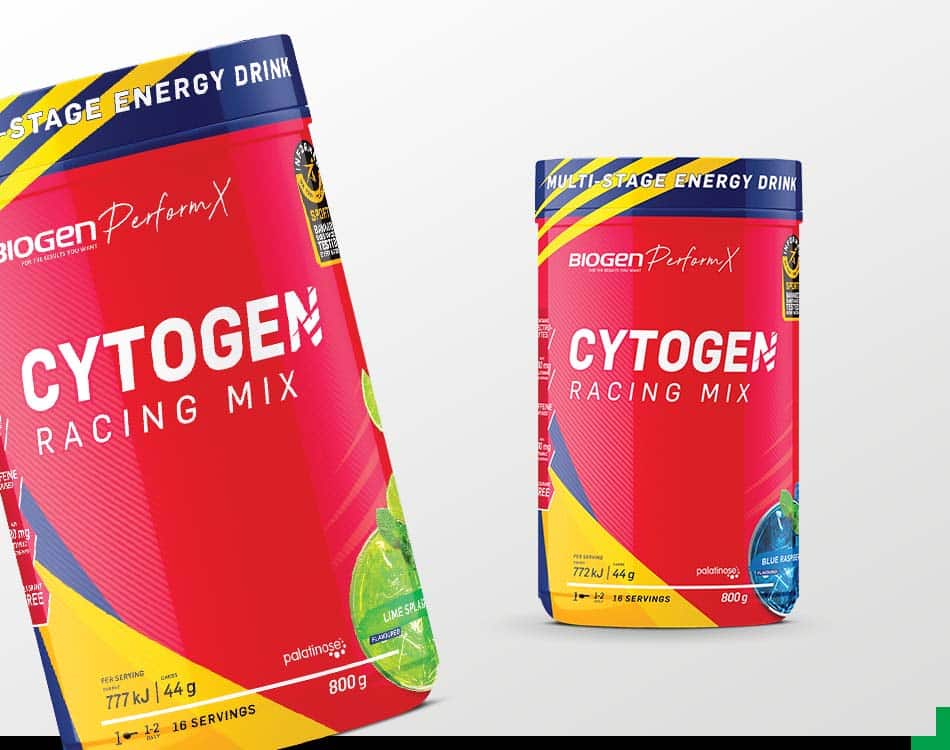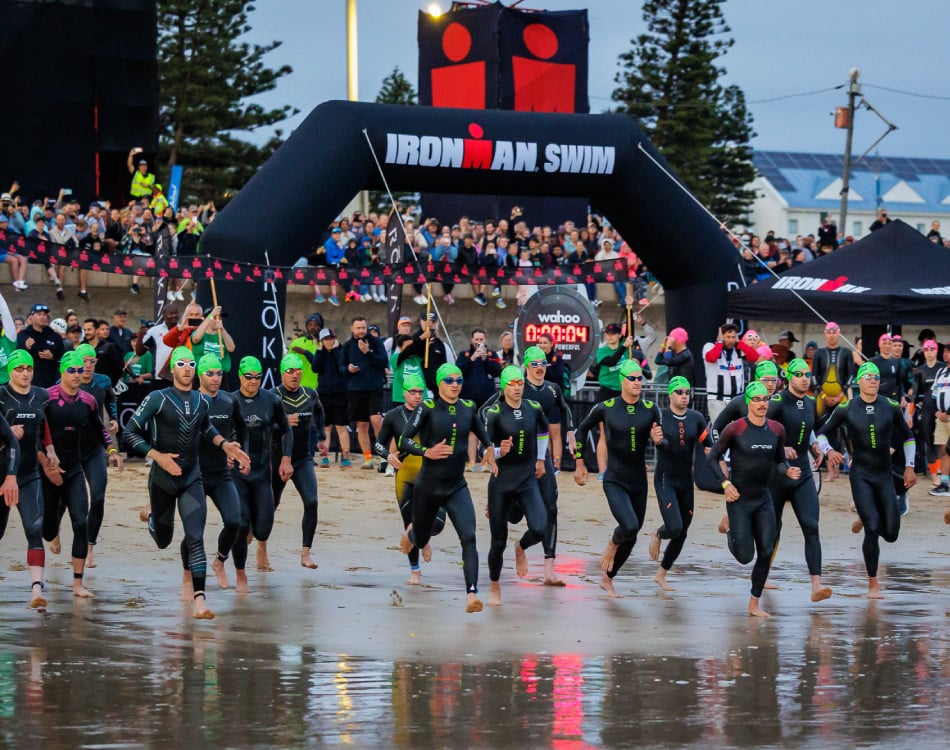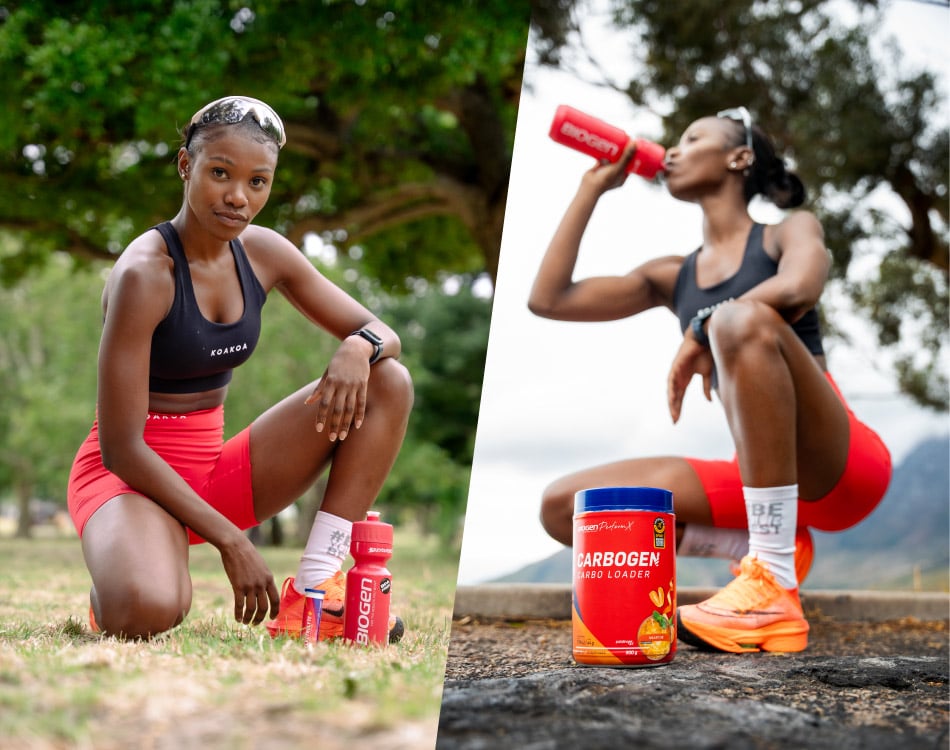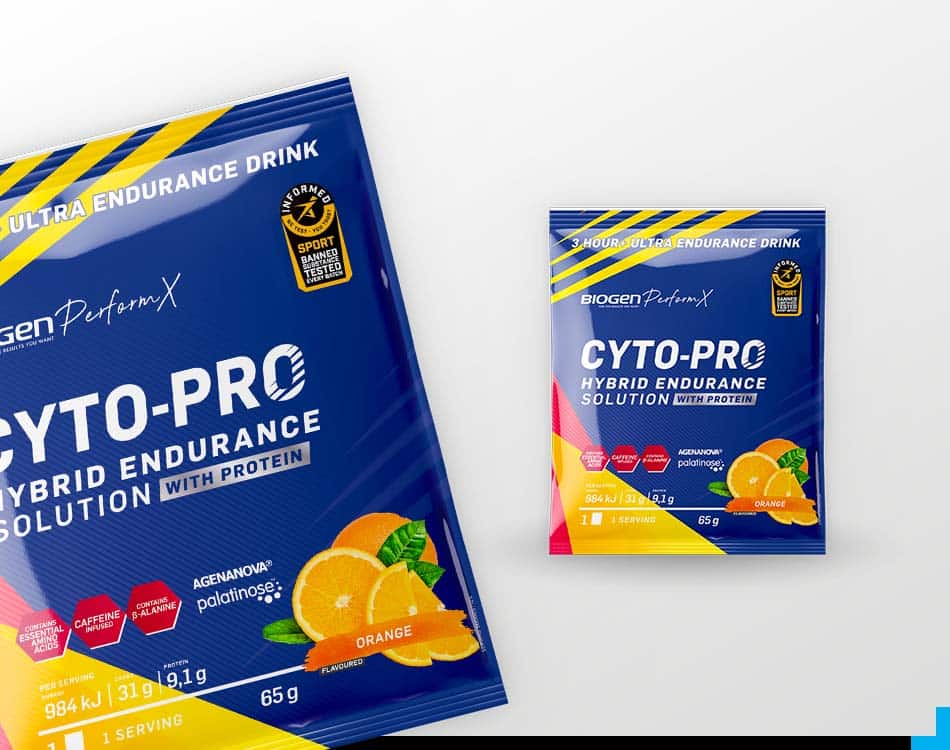Endurance athletes generally require large amounts of carbohydrates to sustain their efforts over longer distances.
And research consistently reaffirms that the right carbohydrate intake during exercise can significantly enhance performance.
General recommendations for carbohydrate ingestion during events include:
- 60-150 minutes: 30–60g/hour
- 150 minutes+: 60–90g/hour (based on tolerance) with feeds every 15-20 minutes
GI distress
Most athletes turn to gels, bars and energy drinks to fuel their training and race efforts but athletes tread a fine line between optimal fuelling and those dreaded gastrointestinal (GI) issues.
Even with relatively modest carbohydrate intakes, some athletes experience some form of GI distress, including nausea, bloating, cramps and indigestion. In severe cases, athletes can also experience diarrhoea and vomiting.
These issues typically occur because your leg muscles hog your body’s blood supply, especially during intense efforts or sustained efforts over prolonged periods. This leaves insufficient blood to help your digestive system perform its mechanical digestion function properly.
Your body also needs water to digest and absorb carbohydrates and sugars. Gels or energy drinks that contain concentrated sources of carbohydrates and sugar tend to draw water out of your digestive tract, which often results in disrupted digestion and those dreaded cramps and bathroom emergencies.
Obviously, your pre-race hydration level and your water intake during the event or session can help stave off these adverse effects.
Optimised absorption
But now you can also consider incorporating a relatively new breed of endurance energy supplements known as hydrogels.
These carbohydrate-based gels and drinks claim to offer performance benefits. Like most other energy supplements, a hydrogel contains carbohydrates but with added pectin and sodium alginate.
These two ingredients form a gel-like mixture when the gel or drink reaches the stomach. By protecting the carbohydrates from stomach acid in this suspension, the gel-like mixture supposedly allows the carbohydrate to pass faster through the stomach and into the intestine where they are absorbed.
This process is called gastric emptying and is a key measure to determine an energy supplement’s ultimate effectiveness – a faster rate of gastric emptying typically means more of the contents make it to working muscles to fuel your efforts, with a larger dose of readily-available fuel getting there faster. And, importantly, this faster process reduces the risk of GI distress.
For example, the PowerBar® PowerGel™ Hydro Energy Gel C2Max Dual Source Carb Mix available at Dis-Chem stores is designed for rapid absorption and to transport energy to working muscles to help improve endurance performance.
Anecdotal evidence
These products received a great deal of attention in the media after the world’s best marathoner used hydrogels to set a new official world record for the marathon in 2018 and an unofficial record for the event in 2019.
Since then, more athletes have adopted these products, despite a lack of scientific evidence to support the effectiveness of hydrogels over conventional products. In fact, some of the research currently available suggests there is little difference in the benefits offered from hydrogels and conventional products.
For instance, when researchers in Australia compared a hydrogel drink with a glucose and fructose drink in a small-scale study, they found no differences between the two drinks in the blood sugar responses of the runners or in carbohydrate oxidation rates.
Furthermore, all the runners in the study developed GI distress during the trials, and the frequency and severity of GI distress were the same regardless of which drink they consumed. More importantly, there were no statistically significant differences in performance.
These results were echoed in the findings of a study conducted by a team of British researchers who studied endurance athletes to identify potential performance benefits.
However, researchers from the universities of Cape Town in South Africa, and Stirling and Brighton in the UK did confirm that hydrogels have a faster gastric emptying rate than the non-hydrogel options used in the study.
Based on the current body of available research, it is hard to draw definitive conclusions. What we know for sure is that carbohydrate supplements in any form definitely deliver a performance benefit.
As such, the best option for individual athletes boils to personal preferences around taste, palatability and, ultimately, tolerability when performing at your peak.













